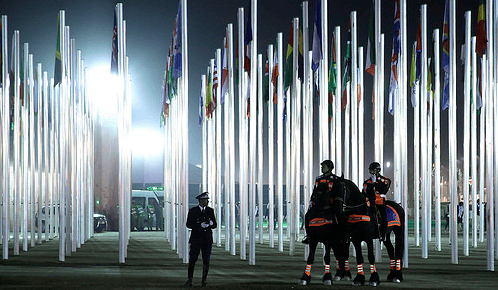The Marrakech Climate Change Conference (November 7-19, 2016) will not be remembered just as “the COP after Paris”. The very slogan chosen by the Moroccan Presidency – the “COP of action”- had stressed the intention of giving COP 22 the political weight and significance it needed to carry on the momentum gained last year with the adoption of the Paris Agreement. Its rapid entry into force on November 4th further contributed to spotlight the conference by assigning Marrakech to host the first meeting of the agreement’s decision-making body (codename: CMA1). This fact inevitably raised expectations for a quick development of the operational guidance needed to get the deal up and running.
“COP22 was asked to start considering how to shift from what was decided in Paris to how the agreement’s ambitious objectives will actually be fulfilled”, explains Carlo Carraro in a new post recently published on his blog. “Many concrete issues had been left unanswered by the Paris Agreement, including how Parties will communicate their efforts on mitigation, adaptation, climate finance, transfer of technology and capacity building; how efforts will be ambitiously reviewed and scaled up in time; and how a process to facilitate implementation and promote compliance will be designed. All these aspects constitute the so-called ‘rulebook‘ which includes the technical details that will make the Agreement operational and thus implementable”.
The debate about the features, information and accounting of the mitigation section of the Nationally Determined Contributions (NDCs) – i.e. the climate plans put forward by Parties- turned into a thorny discussion on what the scope of NDCs should be and how differentiation between developed and developing countries should be addressed, the so-called “orphan issues”, i.e. issues mandated under the Paris Agreement but without an agenda item, such as the definition of common timeframes for NDCs, their adjustments, the guidance provision related to finance and the setting of a new collective goal regarding financial support: those are some of the issues discussed at COP22.
“Although at the end of the day no substantial progress was made on the rulebook, Parties agreed crucially on a strict timeline for technical work next year and, more importantly, on a deadline for all work to be completed“, comments Carraro. “It was set for 2018 when, together with COP24, the third part of the CMA1 will be convened and asked to adopt all critical decisions. The deadline is quite ambitious. To give an idea of how quickly the work will need to be expedited, the rulebook of the Kyoto Protocol took 3 years to be drafted and required an additional COP (COP6 part 2) to be convened before it was adopted (ironically enough) in Marrakech in 2001.”
Read the integral version of the article on Carlo Carraro’s blog.




